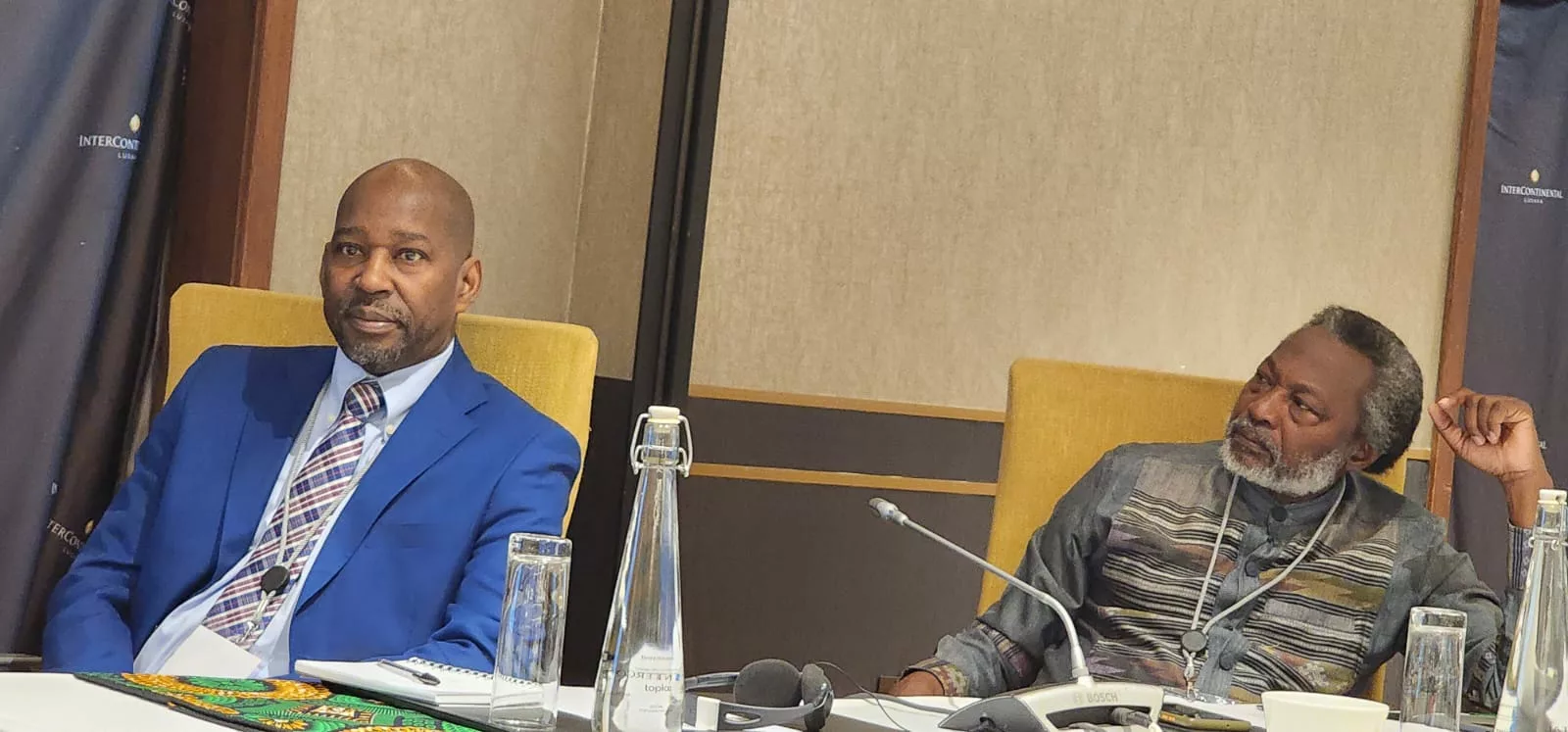|
Getting your Trinity Audio player ready...
|
Africa’s food systems face multiple shocks and stressors hence the need to embrace resilience and inclusivity in implementing the Post-Malabo Comprehensive Africa Agriculture Development Programme (CAADP).
In his presentation representing the thematic working group on ‘Enhancing Resilience of Livelihoods and Agri-food Systems to Shocks’ during the ongoing CAADP Validation Workshop for Technical Working Groups in Lusaka, Zambia, Manyewu Mutamba, the African Union Development Agency (AUDA-NEPAD)’s Senior Programme Officer, Food Security, said Africa’s food systems face multiple shocks and stressors.
“A multi-hazard environment puts Africa’s food systems under perpetual pressure. This then makes it imperative to manage climate risk together with economic risks, political crises, armed conflicts, global market shocks, fires, disease/pest outbreaks, and mass migration. According to the World Economic Forum (2019), environmental and social risks account for 3 out of the top 5 risks by their likelihood and 4 out of the top 5 by their impacts.
“In 2023, disasters caused $13.8 billion in economic losses for over 11.7 million people in Africa, highlighting the urgent need for resilience interventions. Various risks affecting Africa’s food systems also affect the willingness to invest in agriculture on a long-term basis. Reducing risk exposure attracts investment into agriculture and subsequently lifts people out of poverty, reduces hunger and undernourishment, and raises incomes and living standards,” Mutamba said.
Addressing the same gathering, Dr. Janet Edeme, the Head of the Rural Development and the Agriculture and Food Security Division of the African Union Commission for Agriculture, Rural Development, and Blue Economy (ARBE), while presenting on the thematic working group on inclusivity and equality in agri-food systems, said social and gender inequalities are also on the rise, with women, youth and marginalized groups being among the most affected by these shocks.
“Women constitute about 50% of the agricultural workforce, and 80% of them reside in rural areas. Over 60% are employed in rural areas in the agriculture sector and their empowerment is essential for improving productivity, nutrition, and household incomes. Africa has the youngest population globally and constitutes 60% of the continent’s demography.
“Youth face age-specific challenges such as unemployment, underemployment, lack of access to land, finance, and decent job opportunities. Marginalized groups such as persons with disabilities, the elderly, and those with special needs also face structural barriers, including discrimination, limiting their access to resources, markets, and services. The lack of inclusivity negatively affects agricultural production and productivity; low economic and income growth results in persistent poverty, food insecurity, malnutrition social upheaval. A well-functioning agrifood system that is inclusive of these groups can spur urban and rural development, entrepreneurship, and wealth creation,” Dr. Edeme said.
Dr. John Ulimwengu, a senior research fellow at the International Food Policy Research Institute (IFPRI) underscored the importance of allocating 10% of the budget by African governments to agriculture to achieve 6% agriculture growth as outlined in the Malabo Declaration.
Speaking about the Post-Malabo CAADP Agenda Theory of Change, Dr. Ulimwengu said Africa faces high levels of food insecurity and different forms of malnutrition including nutrient deficiencies.
“There are several impacts of unsustainable agricultural practices on the environment resulting in food safety concerns and the prevalence of food-borne diseases. Africa also grapples with a lack of innovative financing to support access to emerging technologies. The continent is also battling with climate change and the threat of repeated and compounding shocks and stressors. Therefore, there is a need for an official and coherent theory of change for the post-Malabo Agenda,” Dr. Ulimwengu said.
The post-Malabo agenda’s long-term vision is for “African agri-food systems that are sustainable, resilient to shocks and inclusive in delivering economic prosperity, livelihoods, and better diets and nutrition for all of Africa’s population without leaving anyone behind”.
This vision is enshrined in Agenda 2063 on the Africa We Want, the Africa Common Position on Food Systems, and more recently in the first Africa Climate Summit Declaration 2023.
“To navigate food system complexities, there is a need for policy coherence — the systematic promotion of synergies and mitigation of trade-offs, among the various objectives of food system policies. This coherence is not merely about avoiding contradictions; it’s about aligning and harnessing synergies between different policy areas to achieve sustainable healthy and safe diets for all.
“Power imbalances can lead to policies that favor certain groups over others, potentially undermining the equity and effectiveness of food system transformation. Without this understanding, there is a higher risk of developing policies that fail to consider the complex interplay of interests, leading to ineffective or counterproductive outcomes,” Dr. Ulimwengu added.
Dr. Hamady Diop, the CAADP Post-Malabo Process Coordinator said there is value in delivering comprehensive support on all stages of the process in a holistic and well-coordinated manner.
“The Post-Malabo Agenda provides an opportunity to redefine Africa’s agenda. It will retain CAADP’s strengths while making strategic adjustments to address emerging issues and global trends.
“The Post-Malabo Agenda development process will involve stakeholder consultations, analysis, research, technical drafting, and political mobilization, leading to a new agenda and commitments by the Heads of States and Governments by January 2025,” Dr. Diop said.






